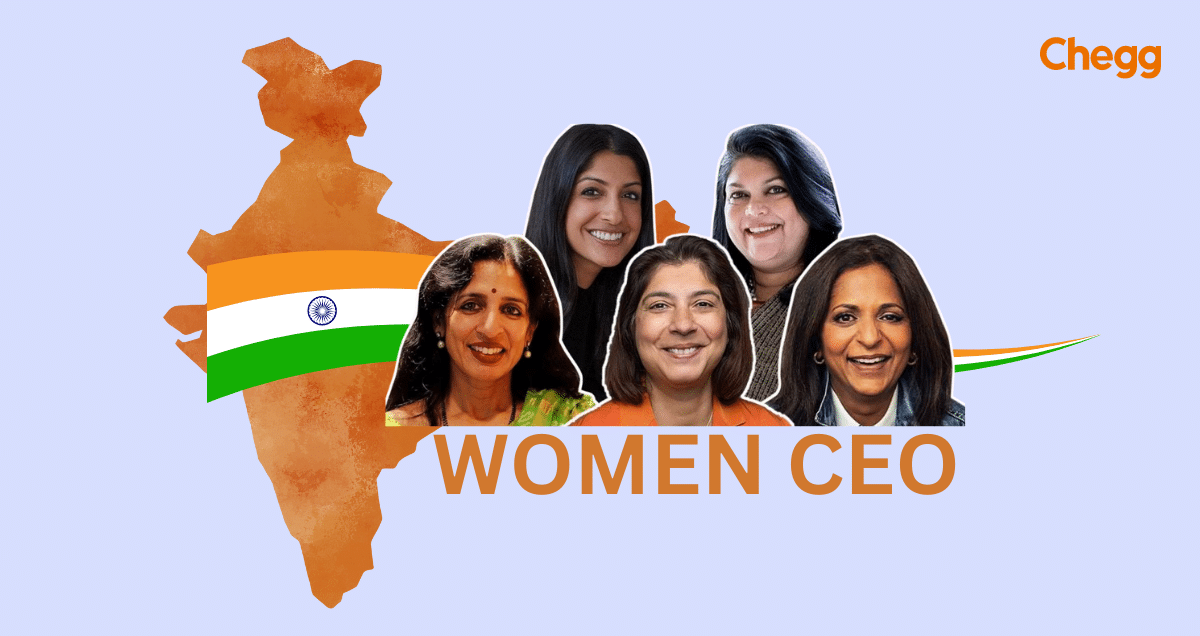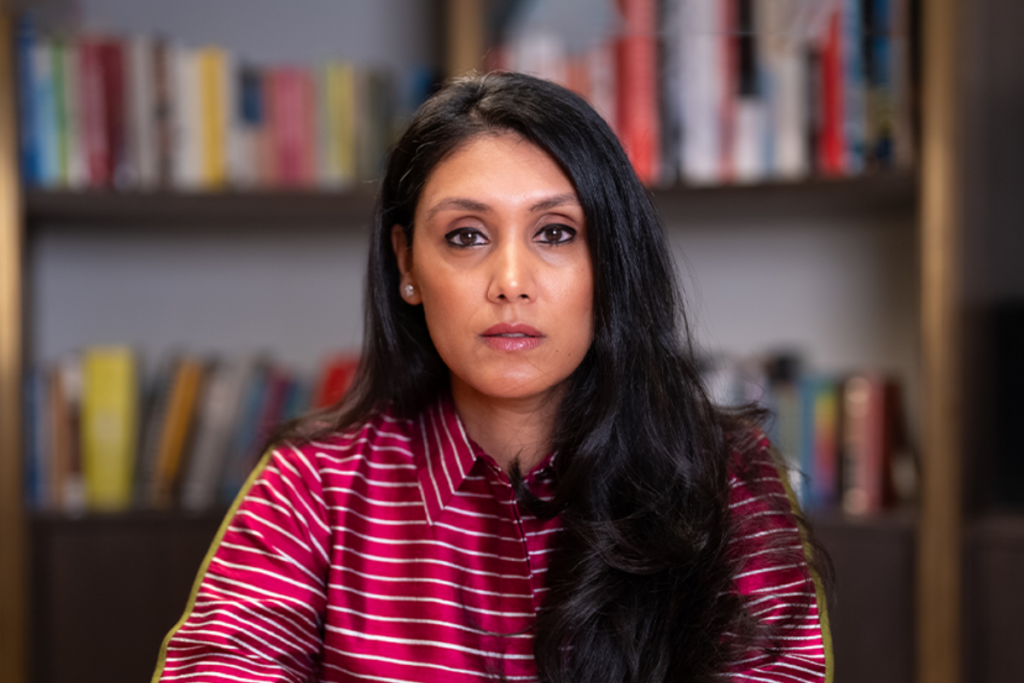

Quick Summary
The rise of women CEOs in India (2025) signals a powerful transformation in the country’s business and leadership landscape. According to recent reports, nearly 20% of Indian enterprises are now led by women, reflecting a steady surge in female entrepreneurship and corporate leadership. Yet, with only 8% of CEOs in India being women, these trailblazers stand out as catalysts of change challenging gender norms, reshaping industries, and redefining what success looks like.
From women-led startups disrupting technology and finance to female executives steering Fortune 500 companies, these leaders are proving that innovation has no gender. Their journeys are stories of resilience, strategic brilliance, and purpose-driven leadership building inclusive workplaces, mentoring young talent, and driving India’s economic growth story forward.
In this feature, we spotlight the most inspiring women CEOs in India their success stories, leadership lessons, and the impact they’re creating in 2025 and beyond. Get ready to meet the women who are not just breaking the glass ceiling but redesigning the entire roof.
From boardrooms to breakthroughs: Meet the top female CEO in India who’s setting new standards in leadership. Below is a list of Indian women ceo list:
Check out about the top 10 female ceo in India in detail:

Leena Nair, an alumnus of XLRI Jamshedpur and a native of Kolhapur, Maharashtra, is acclaimed for her people-centered approach to leadership. She is the youngest woman CEO in India. Nair, a management gold medalist from XLRI, Jamshedpur, and a graduate of Sangli’s Walchand College of Engineering with a degree in electrical engineering, took the helm of Chanel in January 2022.
Before joining Chanel, Nair worked as the Chief Human Resource Executive for British packaged food and consumer products major Unilever PLC. She was Unilever’s first female, Asian, and youngest-ever chief human resource executive.
Nair has always been a strong supporter of equality and diversity, as well as a fighter for change. In 2021, she was awarded the Great British Business Woman Role Model of the Year honour. She is an inspiration to other young female ceo in India.

Matchmaking has changed significantly for the younger age because of Dubey. The Match Group, which owns dating websites including Tinder, Match, OkCupid, and Hinge, is led by her. She attended IIT Kharagpur to study Metallurgical engineering after growing up in Jamshedpur. She started her career at Texas Instruments as an engineer.
In 2006, she started working with the Match Group and took on different jobs. In 2017, she was appointed Chief Operating Officer of Tinder. Dubey presently holds the position of Chief Executive Officer of Match Group. At Vogue Women of the Year 2021, she was selected as the Tech Leader of the Year. She comes on 2nd position when we talk about top 5 female CEO in India.

The richest female CEO of the international company that manufactures electronics, Flex, formerly known as Flextronics, is Revathi Advaithi. One of the most popular women CEOs in India representing the business world, Revathi began her career as a shop floor supervisor at Eaton in Shawnee, Oklahoma. She is on the list of 2019 and 2020’s Most Powerful Women by Fortune.
Advaithi is a well-known independent director on the boards of Uber and Catalyst. Along with serving on the MIT Presidential CEO Advisory Board, she is a promoter of women in STEM disciplines. She is among the highest paid female ceo in India.

A British-born American entrepreneur who serves as the women CEOs in India and President of the computer networking company Arista Networks. After more than 15 years with Cisco, she joined the firm in 2008 and guided Arista to a successful IPO, growing it into a multibillion-dollar corporation. In addition to her position at Arista, Ullal has been a member of the Snowflake board of directors since 2020.
She was on Forbes’ list of the richest self-made women in America in 2021. Ullal has an electrical technology degree from San Francisco State University and an engineering management master’s degree from Santa Clara University in California.

One of the few women CEOs in India, listed as one of the most respected women CEOs in the Fortune 500. Sonia Syngal is the CEO of Gap Inc., a retailer that specializes in apparel and accessories. She offers a plethora of expertise from her prior employment at Ford Motor Co. and Sun Microsystems. Syngal graduated from Kettering University with a mechanical engineering degree and Stanford University with a master’s degree in manufacturing systems engineering.
Syngal’s use of Gap Inc.’s graphic tees as a platform to encourage young women and elevate their opinions has been a noteworthy accomplishment of her leadership. For its creative strategy to advance gender equality, this program has won acclaim and respect. Gap Inc. has strengthened its position as a top retail firm under Syngal’s leadership by seeking to grow its online presence and develop partnerships with other companies.

The Vimeo CEO is one of the best female business leaders in India. She held the positions of general manager and head of marketing at Vimeo until being promoted to CEO in 2017. The Wharton School of Business awarded Sud a B.Sc. in Finance and Management, and Harvard Business School awarded her an MBA.
Sud, who was raised by Indian immigrants in Michigan, has held many positions with organizations, including Amazon, Time Warner, and Sagent Advisors. She is a Young Global Leader, according to the World Economic Forum.

Since launching the company in 2013, Priya Lakhani has achieved notable advancements in AI-based learning tools for educational institutions. Lakhani also co-founded the Institute for Ethical AI in Education, which was motivated by the need to solve academic underachievement.
Lakhani obtained a Master’s in Law from the University of London and left the practice of law to follow her passion for business. She received credit for her work when she was named to the UK government’s AI Council in 2019. She was awarded Officer of the Order of the British Empire in 2014.

According to Warrior’s LinkedIn profile, she is a leader who is passionate about technology, entrepreneurship, and international trade. In 2019, she launched Fable, a reading platform with a focus on mental well-being.
She previously held positions as Cisco and Motorola’s chief technology officer. She previously served as the CEO of the electric vehicle business NIO USA. Her upbringing was in Vijayawada. The fighter received her undergraduate studies at IIT Delhi and her master’s degree at Cornell University. She was included among the most influential 100 women in the world, according to Forbes.

Reshma Kewalramani is one of the most prominent women CEOs in India in the pharmaceutical industry, serving as the CEO of Vertex Pharmaceuticals. She moved to the United States at the age of 11 and later graduated from Harvard Business School’s General Management Program.
Kewalramani began her career as a physician, practicing for several years before transitioning to the biopharma sector, where she worked for 12 years.
In 2017, she joined Vertex Pharmaceuticals, and by 2020–21, she was promoted to President and CEO. Her remarkable contributions to the industry have earned her prestigious accolades, including being named to the Boston Business Journal’s Power 50 list and receiving the TiE Boston Healthcare Leadership Award.

One of the largest IT service providers in India, HCL Technologies, is led by Roshni Nadar Malhotra, an influential Indian entrepreneur and the daughter of HCL founder Shiv Nadar. Roshni joined HCL Technologies in 2013, and in 2017, she was appointed vice chairperson. In 2020, she made history by becoming the first female chairperson of HCL Technologies, marking a significant milestone for women CEOs in India.
Under her leadership, HCL Technologies has focused on advancing skills in digital technologies such as cloud computing, cybersecurity, and artificial intelligence. Roshni’s vision has played a pivotal role in shaping the company’s strategic direction and maintaining its position as a leader in the IT industry.
As a prominent figure among women CEOs in India, Roshni Nadar Malhotra’s journey stands as an inspiring example of leadership, innovation, and dedication in a traditionally male-dominated sector.

Despite the progress made, women CEOs in India still encounter significant challenges. Understanding these obstacles is crucial to addressing gender inequality in leadership roles. Here are some of the key issues:
Addressing these challenges requires systemic changes, including policy reforms, mentorship programs, and greater awareness about gender equality. The success stories of women CEOs in India highlight the importance of overcoming these hurdles.
The contributions of women CEOs in India extend beyond their individual achievements. They play a pivotal role in driving economic growth and fostering innovation. Here’s how their impact can be measured:
The economic contributions of women CEOs in India underscore the need for continued support and encouragement for female leaders.
To better understand the current state of women CEOs in India, let’s examine some important statistics:
| Metric | Data |
|---|---|
| Total Fortune 500 Companies Led by Women | 5 (as of 2025) |
| Growth Rate of Women CEOs | 22% increase since 2015 |
| Industries with Highest Representation | IT, Healthcare, Finance |
| Average Age of Women CEOs | 45-55 years |
These numbers reflect both progress and areas for improvement. While the number of women CEOs in India is increasing, there is still much work to be done to achieve true gender parity in leadership roles.
Recommended Read:
The Indian government has introduced several initiatives to empower women and promote gender equality in leadership roles. Some notable programs include:
Such initiatives are critical in creating an enabling environment for women CEOs in India to thrive.
The rise of top women CEOs in India is a testament to the power of determination, hard work, and vision. These leaders are not only transforming their industries but also challenging societal norms and paving the way for future generations. By supporting policies that promote gender equality and celebrating the achievements of women CEOs in India, we can ensure a brighter and more inclusive future for all.
If you found this article helpful, please share it with others who might benefit from learning about the incredible contributions of women CEOs in India. Together, we can amplify their voices and inspire change.
Innovative, low-investment ideas for the hidden entrepreneur in you! Explore our guide on Business Ideas.
Read More:
As of recent reports, the number of female CEOs in India is relatively low. Only about 4.7% of CEOs in India are women. This percentage has seen a slight increase over the years, but there is still a long way to go for gender parity in leadership roles.
Indra Nooyi was the first woman CEO in India. She has consistently been ranked among the top 100 women in the world. Forbes recognized her as the 13th most powerful woman in 2014, while Fortune named her the second most important woman in 2015 and 2017.
There are many best female CEO in India:
1. Roshni Nadar Malhotra: Chairperson of HCL Technologies.
2. Nisaba Godrej: Chairperson and Managing Director of Godrej Consumer Products Limited.
3. Zarin Daruwala: Former CEO of Standard Chartered Bank, India.
The given below are the top 5 Women CEOs in India:
1. Leena Nair, CEO of Chanel
2. Sharmistha Dubey, CEO of Match Group
3. Revathi Advaithi, CEO of Flex
4. Jayshree Ullal, CEO of Arista Networks
5. Roshni Nadar Malhotra, CEO of HCL Corporation
The richest female CEO in India is Kiran Mazumdar-Shaw, the chairperson and managing director of Biocon, a leading biopharmaceutical company. As of recent estimates, her net worth is over $5 billion, making her the wealthiest female CEO in the country.
Leena Nair is one of the youngest female CEOs in India. She became the CEO of Chanel in January 2022. Before joining Chanel, she was the Chief Human Resource Executive at Unilever.
IT, healthcare, banking, and finance are the top sectors with the highest representation of women CEOs in India.
Programs like the Women Entrepreneurship Platform and MUDRA Scheme aim to empower women in business and leadership roles.
Leadership, communication, decision-making, and innovation are key qualities of successful women CEOs in India.

Authored by, Samiksha Samra
Digital Content Writer
Samiksha is a writer with a passion for sharing ideas and a knack for detail. She loves turning concepts into meaningful, engaging content. With a strong background in research and content strategy, she crafts clear, easy-to-understand narratives that resonate with readers. Her curiosity drives her to explore new subjects, ensuring every piece she creates is both insightful and impactful.
Editor's Recommendations
Chegg India does not ask for money to offer any opportunity with the company. We request you to be vigilant before sharing your personal and financial information with any third party. Beware of fraudulent activities claiming affiliation with our company and promising monetary rewards or benefits. Chegg India shall not be responsible for any losses resulting from such activities.
Chegg India does not ask for money to offer any opportunity with the company. We request you to be vigilant before sharing your personal and financial information with any third party. Beware of fraudulent activities claiming affiliation with our company and promising monetary rewards or benefits. Chegg India shall not be responsible for any losses resulting from such activities.